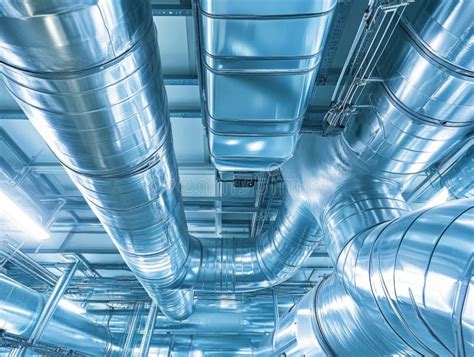Improve HVAC Airflow and Reduce Energy Bills
Are you tired of inconsistent temperatures, high energy bills, and a generally inefficient HVAC system? Poor airflow is a common culprit behind these problems. Fortunately, improving your HVAC airflow can significantly boost efficiency and lower your energy costs. This comprehensive guide will explore various strategies to optimize your system's performance and save you money.
What is HVAC Airflow and Why is it Important?
HVAC airflow refers to the movement of air throughout your heating, ventilation, and air conditioning system. Proper airflow ensures that conditioned air reaches every room evenly, maintaining comfortable temperatures and humidity levels. Insufficient airflow forces your system to work harder, leading to increased energy consumption and potential equipment damage. Conversely, optimized airflow means your system can achieve the desired temperature more quickly and efficiently, leading to lower energy bills and a longer lifespan for your equipment.
Common Causes of Poor HVAC Airflow
Several factors can contribute to poor airflow within your HVAC system. Understanding these issues is the first step towards effective solutions.
Dirty Air Filters: This is arguably the most common culprit. Clogged air filters restrict airflow, forcing your system to strain and consume more energy.
Clogged Vents and Registers: Dust, debris, and even furniture can obstruct air vents, reducing airflow to specific rooms.
Leaking Ducts: Leaks in your ductwork allow conditioned air to escape into your attic, walls, or crawlspace, significantly reducing efficiency. This is a hidden problem that many homeowners are unaware of.
Improperly Sized System: An HVAC system that's too small for your home will struggle to maintain comfortable temperatures, while one that's too large will cycle on and off frequently, leading to uneven temperatures and increased wear.
Inadequate Insulation: Poor insulation allows heat to escape in the winter and enter in the summer, putting extra strain on your HVAC system and increasing energy consumption.
How to Improve HVAC Airflow and Lower Energy Bills
Now that we understand the common causes, let's explore practical solutions to enhance your HVAC airflow and reduce your energy bills:
1. Regularly Change Your Air Filters: This is the single most impactful and easiest thing you can do. Replace your air filters every 1-3 months, or more frequently if you have pets or allergies. Check your filter's condition regularly and replace it as needed.
2. Clean Vents and Registers: Regularly inspect and clean your vents and registers, removing any dust, debris, or obstructions. Use a vacuum cleaner with a brush attachment for thorough cleaning.
3. Seal Duct Leaks: Leaky ducts are a significant source of energy loss. While professional duct sealing is ideal, you can often address minor leaks yourself using duct tape or mastic sealant. However, for extensive leaks, professional help is recommended.
4. Consider a Ductless Mini-Split System: If your ductwork is significantly damaged or inefficient, a ductless mini-split system might be a cost-effective solution. These systems are highly efficient and offer precise temperature control for individual rooms.
5. Improve Home Insulation: Properly insulating your home's walls, attic, and floors reduces the load on your HVAC system. This can lead to significant energy savings in both heating and cooling.
6. Schedule Professional HVAC Maintenance: Annual maintenance by a qualified HVAC technician is crucial. They can identify and address potential issues, optimize your system's performance, and ensure it's running efficiently.
7. Programmable Thermostat: Utilize a programmable or smart thermostat to optimize your heating and cooling schedule, reducing energy usage when you're away from home or asleep.
What are the signs of poor HVAC airflow?
This is a question many homeowners have. Poor HVAC airflow often manifests in several ways:
- Uneven Temperatures: Some rooms are too hot or too cold, while others are comfortable.
- High Energy Bills: Your energy costs are consistently higher than expected.
- Increased System Noise: Your HVAC system runs constantly and makes unusual noises.
- Dust Buildup: Excessive dust accumulates even with regular cleaning.
- Short Cycling: Your system turns on and off frequently.
By addressing these issues and implementing the strategies outlined above, you can significantly improve your HVAC airflow, reduce your energy bills, and create a more comfortable living environment. Remember, consistent maintenance and attention to detail are key to maximizing the efficiency and lifespan of your HVAC system.

